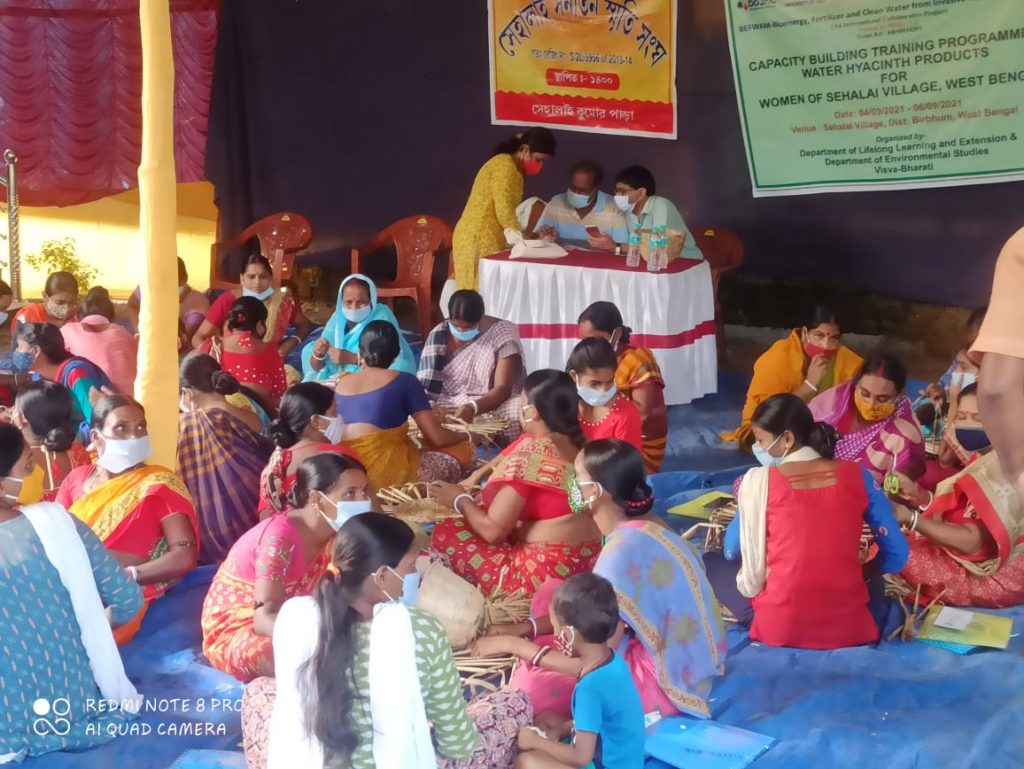INIAP – International Network on Invasive Aquatic Plants

The BEFWAM project focuses on using invasive aquatic macrophytes (water hyacinth) and nutrient rich waste (manure, faecal sludge) in combination with immobilised microbial systems to facilitate the production of biogas, clean water and recovery of nutrients in developing countries.
Grant: £1.7m BBSRC-funded (GCRF)
Dates: January 2019 – January 2022 (3 year project)
Principal investigator: Dr Andrew Ross
Co-investigators: Dr Miller Camargo- Valero, Dr Louise Fletcher, Dr Valerie Dupont, Professor John Blacker, Professor Jon Lovett, Professor Aniruddha Pandit (ICT), Professor Shibani Chaudhury (VBU), Ms Mary Susan Abbo (CREEC)
Project partners:
Background:
More than 625 million people have no access to modern energy services in Sub-Saharan Africa. Many communities are still suffering from poverty, malnutrition, poor agricultural activities, and poor sanitation affecting quality of life.
Background:
More than 625 million people have no access to modern energy services in Sub-Saharan Africa. Many communities are still suffering from poverty, malnutrition, poor agricultural activities, and poor sanitation affecting quality of life.
There is a huge gap between energy supply and demand in Africa and other developing countries that successive efforts have failed to bridge; socio-economic wellbeing is directly or indirectly related to energy consumption. Therefore, the supply of clean affordable and reliable forms of energy is a key priority (supporting SDG goal 7).
In addition to energy issues, water reserves are poorly managed and sanitation is a huge problem. The discharge of untreated sewage pollutes rivers and water sources, resulting in a critical environmental and health hazard.
Water Hyacinth grows in lakes, rivers and stagnant water and is a global problem which is causing considerable pressures on infrastructure, local economies and health. It is normally associated with poor sanitation and discharge of sewage into the water body which often has the following detrimental effects:
Impact:
The development of new ways to produce clean and affordable energy from water hyacinth not only solves a major environmental problem but represents an alternative supply chain to replace unsustainable use of firewood for cooking.
Impact
The development of new ways to produce clean and affordable energy from water hyacinth not only solves a major environmental problem but represents an alternative supply chain to replace unsustainable use of firewood for cooking. This in turn will result in a cleaner environment, improved health, employment opportunities and development of new sustainable routes for the production of bioenergy and biomaterials.
The benefits of utilising Water Hyacinth are clear with the development of viable conversion routes promoting jobs in harvesting and collection, improvements in infrastructure and fishing, the cleaning of water and reducing of disease. The discharge of untreated sewage pollutes rivers and water sources resulting in a critical environmental and health hazard. The treatment of waste water and conservation of water is therefore a priority (supporting UN sustainable development goal 6).
The reduction of fuelwood use will have major benefits to health by using clean burning biogas stoves. The development of new supply chains will generate new revenue streams and provide economic incentive. Added benefits may result from use of nutrients from digestate, potential use of water hyacinth as an animal feed and the future development of bio-refinery approaches for processing of water hyacinth into chemicals and bio-products.
The supply of biomass fuel is not being adequately managed and is rapidly becoming unsustainable. The ability to replace the use of woody biomass for cooking with biogas would create a seismic shift in both energy supply and health (supporting the UN sustainable development goals 3, 7, 11, 12 and 13) while offering advantages over other types of fuel. These include safer handling than flammable liquid fuels due to quick dissipation in case of accidental leakage, hard to steal and impossible to use as intoxicant. This is particularly a problem in Sub-Saharan Africa where in Uganda, for instance, 80% of cooking is done using either firewood or charcoal on simple poorly designed stoves.
Key Areas of Interest: